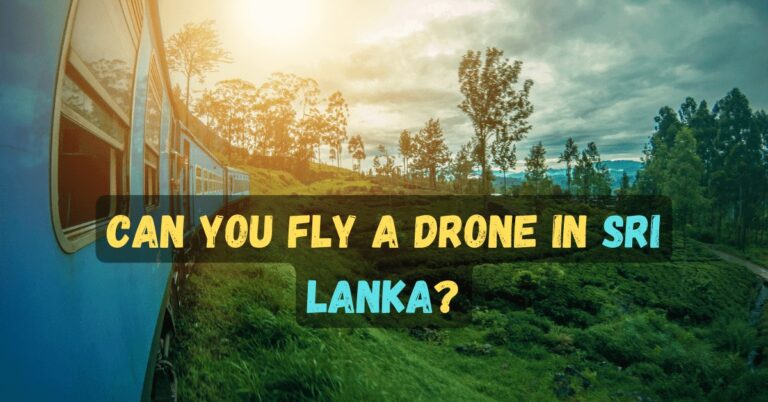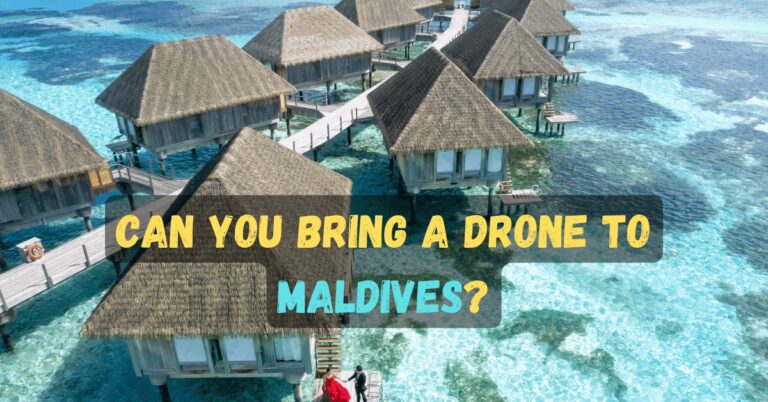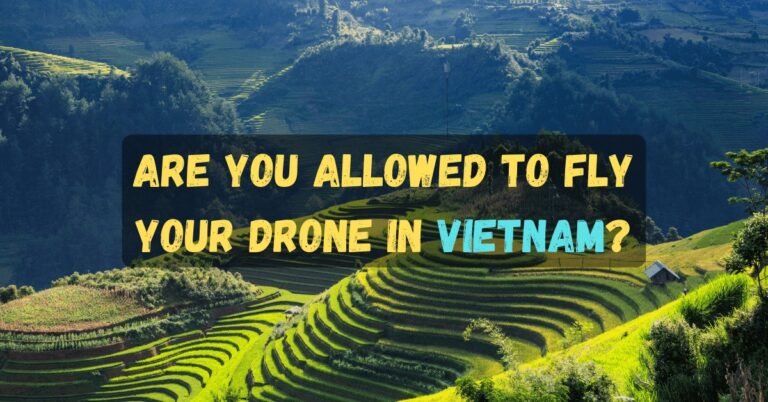Can You Bring a Drone to Tanzania?

Tanzania’s natural beauty offers drone pilots endless opportunities to capture breathtaking aerial views.
From the Serengeti to Mount Kilimanjaro and from Zanzibar to Ngorongoro Crater and Lake Victoria, Tanzania’s diverse landscapes and wildlife make for stunning drone photography and videography.
Can you bring a drone to Tanzania?
To fly a drone in Tanzania, you need to get permits and follow regulations set by the Tanzania Civil Aviation Authority. Avoid flying over crowds and research the rules before flying. Noncompliance can result in penalties and drone confiscation.
In this article, I will share some of the most critical questions about bringing drones to Tanzania. If you want to fly your drone in Tanzania, you will need to understand these questions and know about the rules of Tanzania by reading this article.
Who manages drone laws in Tanzania?
The Tanzania Civil Aviation Authority (TCAA) is the government agency responsible for managing drone laws in Tanzania. The TCAA is accountable for regulating all aircraft use, including drones, in Tanzanian airspace.
They oversee the certification of drone pilots and operators, establish safety guidelines for drone operations, and enforce regulations related to drone use. If you have any questions or concerns regarding drone regulations in Tanzania, you can contact the TCAA for more information.

The TCAA’s work in managing drone laws in Tanzania includes ensuring the safety and security of airspace users and the public. They set standards for the certification and training of drone pilots and operators to ensure they have the knowledge and skills to operate drones safely.
They also establish regulations and guidelines that govern the use of drones for different purposes, including commercial and non-commercial activities.
The TCAA works closely with other government agencies and stakeholders to ensure that drone operations comply with the law and do not threaten public safety or national security.
In addition, the TCAA conducts regular inspections and audits of drone operators to ensure they adhere to the established guidelines and regulations.
What are the drone laws in Tanzania?
There are so many drone rules in Tanzania that you will need to follow. Here are some essential rules you must remember while flying a drone.
Drone registration:
All drones operated in Tanzania must be registered with the TCAA. The operator must provide the drone’s make and model, weight, and other relevant details to register a drone. The registration process may involve a fee and can be done online through the TCAA website.
Drone pilot certification:

All drone pilots operating in Tanzania must hold a valid Remote Pilot License (RPL) issued by the TCAA. To obtain an RPL, the pilot must complete a training program covering airspace regulations, meteorology, and drone operations. The training program may involve a fee and a written exam.
Drone operation limitations:
Drones must be flown at least 400 feet (122 meters) or within 5 kilometers of an airport, helipad or landing area. Additionally, drones must not be flown over crowds of people or at public events. The operator must always maintain a visual line of sight with the drone.
Drone insurance:
Drone operators must have liability insurance coverage for their drones. The insurance coverage must always be valid and in force during drone operations.
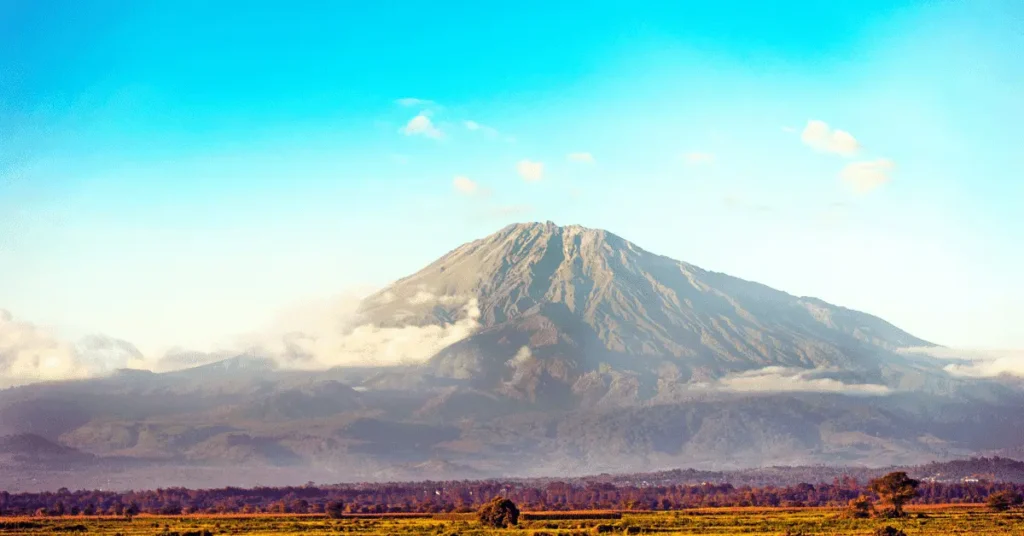
Prohibited areas:
Drones are prohibited from flying over government installations, military bases, national parks, and wildlife reserves without prior authorization from the relevant authorities. Flying a drone in these areas without permission may result in legal action.
Restricted areas:
Drones may be flown in restricted areas with prior authorization from the TCAA.
Restricted areas include airspace above specific infrastructure, such as power lines, pipelines, and communication towers. Operators must comply with additional rules and regulations when flying in restricted areas.
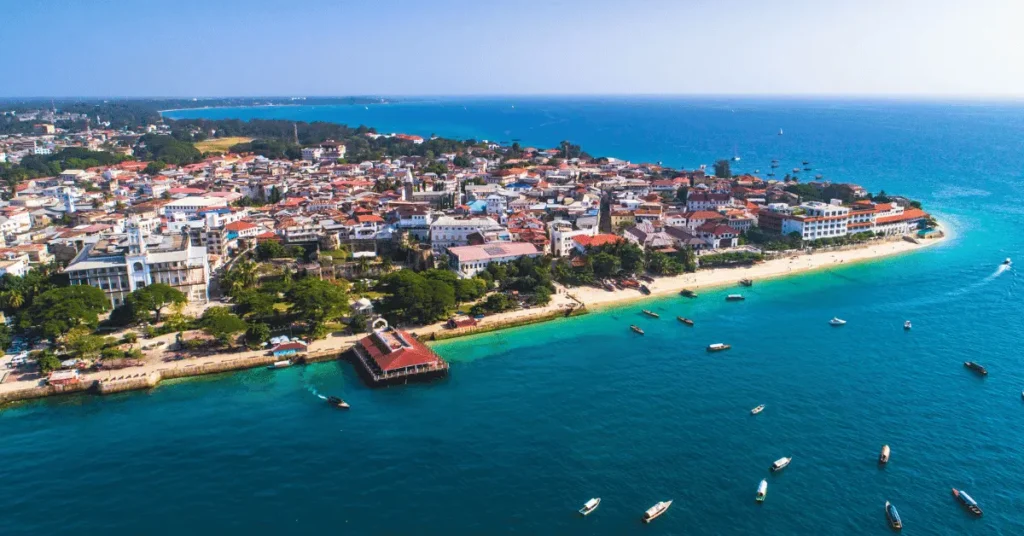
Commercial drone operations:
Commercial drone operations, such as aerial photography or surveying, are only allowed with a permit from the TCAA. The permit application must include a description of the process, the type of drone used, and the pilot’s qualifications.
Emergency response drones:
Emergency response drones may be operated without prior authorization in emergencies, such as search and rescue operations, disaster relief efforts, or medical evacuations. The operator must coordinate with relevant authorities before and during the emergency response operation.
Penalties:
Violations of drone regulations can result in fines, confiscation of the drone, and legal action. The severity of the penalty may depend on the nature of the violation and the level of risk it poses to public safety.
It’s important for drone operators in Tanzania to be familiar with these rules and regulations and always to prioritize safety when operating a drone. Additionally, it’s advisable to stay up-to-date with any changes or updates to the rules that the TCAA may make.

What are the specific drone laws for commercial and recreational drone pilots in Tanzania?
Tanzanian Civil Aviation Authority (TCAA) has published guidelines for the operation of drones in the country. These guidelines apply to both commercial and recreational drone pilots.
According to the guidelines, drones should not be flown above 400 feet above ground level or within two miles of an airport. Additionally, drones should not be flown over crowds or near sensitive areas like government buildings or military installations.
Commercial drone pilots must obtain permission from the TCAA before operating a drone in Tanzania. The permission process involves submitting an application that includes the details of the planned flight, such as the location, altitude, and purpose of the flight.
The TCAA will review the application and issue a permit if it meets the safety requirements.

Recreational drone pilots are not required to obtain permission from the TCAA but are expected to follow the same guidelines as commercial pilots. It is also recommended that recreational pilots get liability insurance and seek approval from landowners before flying over private property.
It’s important to note that drone laws and regulations can change over time, so it’s always best to consult with local authorities and the TCAA for the most up-to-date information.
READ MORE: Can you bring a drone to the Bahamas?
What are the drone classifications in Tanzania?
Tanzania doesn’t have specific drone classifications, but according to my knowledge, you can divide the drones into three categories. These categories are almost usual in almost all countries. So it is a fact that they can be used in Tanzania.
A drone weighing 5 kilograms or less than that is in category one, and you can call it a class one drone. You can fly them for recreational purposes.
The drones weighing 5-15 kilograms are in category two, and you can call them class two drones. These drones need permits and need to be registered with TCAA.
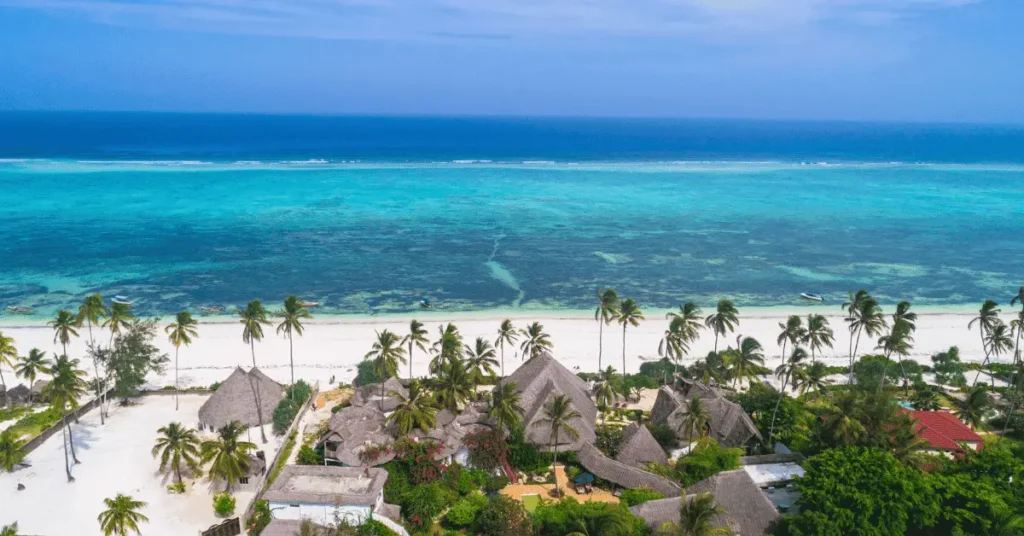
The drones weighing 15-25 kilograms or more can be category three drones and are called class three drones. These drones need special authorization from direct TCAA.
How to register a drone in Tanzania?
In Tanzania, registering a drone is managed by the Tanzania Civil Aviation Authority (TCAA). To register a drone in Tanzania, you will need to follow these steps:
- Obtain a drone operator certificate (DOC) from TCAA: To obtain a DOC, you must apply to TCAA and complete their training program for drone operators.
- Obtain a certificate of airworthiness (CofA) for your drone: This requires having your drone inspected and certified as airworthy by a qualified professional.
- Please apply for a Remote Piloted Aircraft System (RPAS) registration: This requires completing an application form provided by TCAA and submitting it along with supporting documents, such as your DOC and CofA.
- Pay the registration fee: Once your application is approved, you must pay the registration fee stipulated by TCAA.

- Receive your registration certificate: After payment, TCAA will issue you a registration certificate, which you must keep on hand when operating your drone.
It’s important to note that drones are subject to regulations in Tanzania, which include restrictions on flying in certain areas and at specific heights. It would help to familiarize yourself with these regulations before registering and operating your drone.
Do you need drone insurance in Tanzania?
Yes, it is recommended. Tanzania Civil Aviation Authority (TCAA) requires all drone operators to obtain a permit before flying a drone.
Drone operators must provide proof of insurance covering third-party liability and property damage as part of the permit application process.
The insurance coverage required by TCAA includes a range for:
- Third-party liability covers any damage or injury caused to third parties or their property due to drone operations.
- Hull coverage covers the cost of repairing or replacing the drone in case of damage or loss.

It is important to note that drone insurance is legally mandatory in Tanzania. Still, protecting yourself and your drone from potential risks and damages is strongly recommended.
Without insurance, you may be held personally liable for any damage or injury caused by your drone during its operation.
READ MORE: Can you bring a drone to Mauritius?
What do customs do with drones in Tanzania?
Customs officials in Tanzania are responsible for enforcing regulations related to the import and export of drones.
If someone is bringing a drone into Tanzania, they must declare it to customs officials and provide documentation to prove that they have obtained the necessary permit from the TCAA.
Customs officials may also inspect drones to ensure they meet safety and technical standards and are not used for illegal purposes, such as smuggling or espionage.
If a drone is found to violate TCAA regulations, customs officials may seize the drone and take legal action against the operator.
What can a drone give you as a traveler of Tanzania?
Using a drone while traveling in Tanzania can provide unique and breathtaking perspectives of the country’s beautiful landscapes and wildlife. However, there are several rules and regulations that you must follow to ensure the safe and legal operation of your drone in Tanzania.

The benefits of using a drone in Tanzania as a traveler are numerous. Some of these benefits include:
- Breathtaking footage: Tanzania is home to some of the most stunning natural landscapes and wildlife in the world, and a drone can capture these sights in ways that traditional cameras cannot.
- Unique perspectives: Drones can provide a unique perspective of Tanzania’s landscapes and wildlife, giving you a view you may not be able to see otherwise.
- Efficient filming: With a drone, you can quickly and efficiently capture footage of large areas, such as wildlife reserves and national parks.
- Memories to last a lifetime: Using a drone to capture your travels in Tanzania can provide you with memories that will last a lifetime and allow you to share your experiences with others.
Using a drone while traveling in Tanzania can provide a unique and unforgettable experience. Still, following the rules and regulations to ensure safe and responsible drone use is essential.
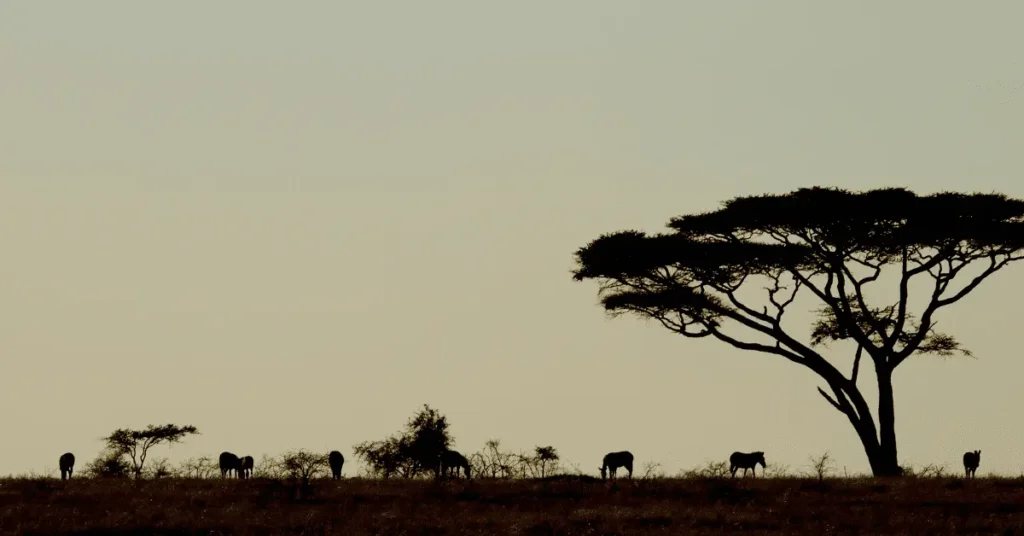
Are there some restricted areas in Tanzania to not fly drones?
Yes, there are restricted areas in Tanzania where flying drones is not allowed. According to the Tanzanian Civil Aviation Authority (TCAA), the following areas are considered no-fly zones for drones:
- Julius Nyerere International Airport in Dar es Salaam
- Kilimanjaro International Airport
- Abeid Amani Karume International Airport in Zanzibar
- Mwalimu Julius K. Nyerere Square in Dodoma
- State House and all government premises
- All national parks, game reserves, and conservation areas
- All areas within 150 meters of any military, police, or security installation
- All places within 50 meters of any person, vehicle, vessel, or structure not under the control of the operator

Additionally, operators of drones in Tanzania are required to obtain a permit from the TCAA and follow strict guidelines to ensure the safe operation of the drone. Researching and following all relevant laws and regulations is essential before flying a drone in Tanzania.
Of what size are drones not allowed in Tanzania?
The Civil Aviation Authority of Tanzania regulates the use of drones in the country. According to their regulations, drones that weigh more than 25 kilograms require special permission to operate in Tanzania.
Additionally, drones may be restricted in airports, military bases, and other sensitive locations. It is essential to check the latest regulations before operating a drone in Tanzania.
What kind of drone is allowed to fly in Tanzania?
In Tanzania, the Civil Aviation Authority (TCAA) regulates the use of drones, also known as Remotely Piloted Aircraft Systems (RPAS). The rules and regulations for operating drones in Tanzania depend on the intended use and the drone’s weight.
For recreational purposes, drones weighing less than 2kg do not require special permissions or approvals from the TCAA. However, drones must be flown in line-of-sight, below 60 meters, and away from airports, military installations, and other sensitive areas.

For commercial or professional use, drones must be registered with the TCAA, and operators must obtain a Remote Pilot License (RPL) and an RPAS operator certificate. Commercial drones vary in size, but you will need permission if your drone weighs more than 15 pounds.
What are the risks to take while flying a drone in Tanzania?
There are several risks associated with flying a drone in Tanzania, and drone operators must be aware of them to ensure safe and lawful operations.
Failure to comply with the regulations set by the Civil Aviation Authority (CAA) can result in legal consequences. This may include fines, confiscation of equipment, or even imprisonment.
Drones can pose a safety risk to people and property if improperly operated. This includes the risk of collisions with other aircraft, buildings, and people on the ground.
Drones equipped with cameras can be used for surveillance or to invade the privacy of individuals. Drone operators should respect the privacy of others and obtain consent before flying over private property.

Drones can cause disturbance to wildlife and disturb sensitive ecosystems if not operated responsibly.
Drones can be used for illegal activities such as smuggling or surveillance. Drone operators should know their surroundings and avoid flying in sensitive areas such as airports, military installations, and government buildings.
Important FAQs
What is drone insurance in Tanzania?
How much does a drone cost in Tanzania?
Can I bring a drone on a Tanzania safari?
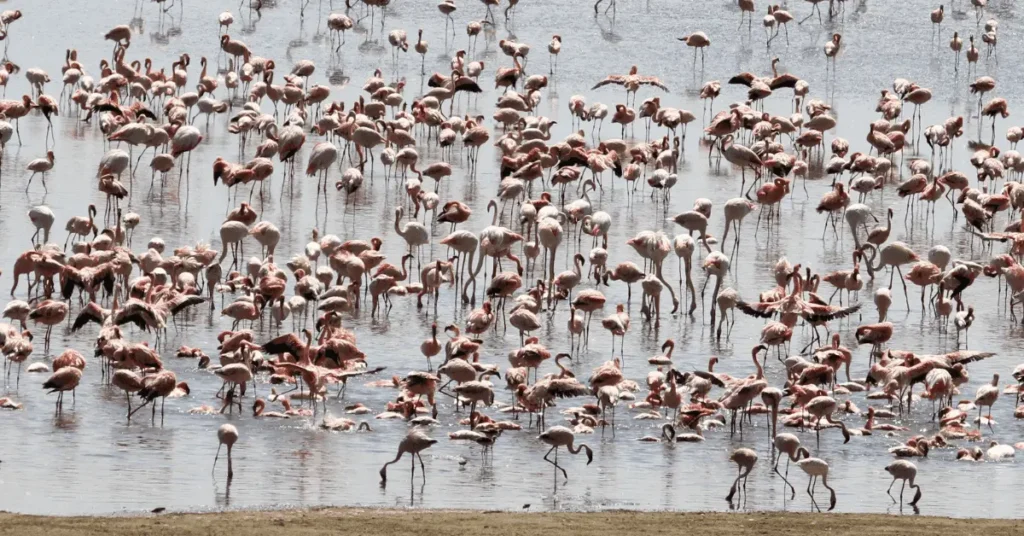
Final Thoughts
To summarize, before bringing a drone to Tanzania, ensure you know the country’s regulations and have obtained the necessary permits. Respect the privacy of locals and avoid flying over private property without permission.
As responsible drone operators, let’s promote safe and respectful drone use by complying with regulations and being considerate of the local community. Do your research and obtain permits before flying to Tanzania. Let’s fly with care and consideration.
If you have any questions related to the question: Can you bring a drone to Tanzania? Then you can ask in the comment box. I will answer them as early as possible. You can also ask me in the comment box or contact me if you have something to say.
Will you dare to fly your drone in front of a lion?
How to Produce Vertical Content with a Drone?
Want to up your content game? 📸 Learn how to create epic vertical content using your drone in our must-read article! Elevate your creativity today. 🚁📽️ #DroneVerticals




